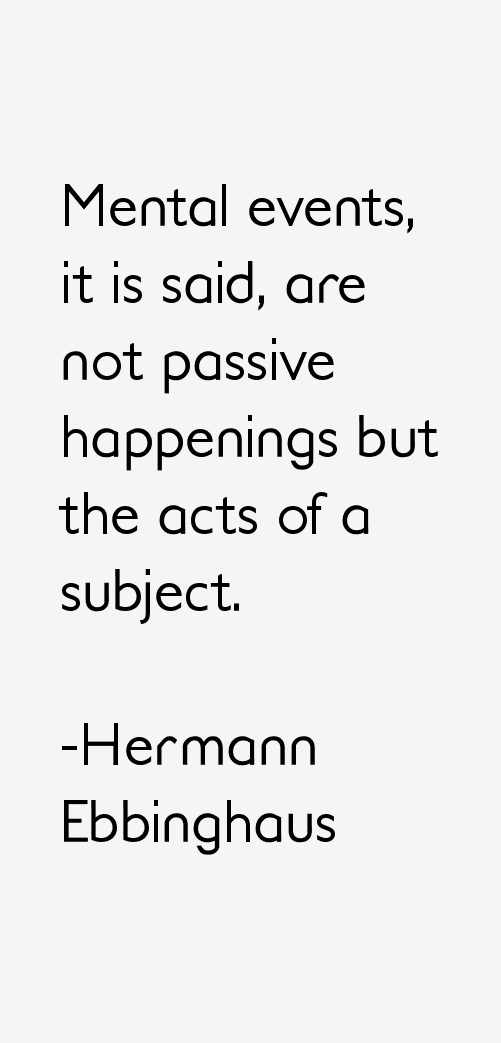Hermann Ebbinghaus Quotes & Sayings
19 most famous Hermann Ebbinghaus quotes and sayings (psychologist). These are the first 10 quotes we have.

“On the basis of the familiar experience that that which is learned with difficulty is better retained, it would have been safe to prophesy such an effect from the greater number of repetitions.”

“The school-boy doesn't force himself to learn his vocabularies and rules altogether at night, but knows that be must impress them again in the morning.”
“Meanwhile the fact that the connection with the activity of memory in ordinary life is for the moment lost is of less importance than the reverse, namely, that this connection with the complications and fluctuations of life is necessarily still a too close one.”
“One needs but to say that, in the case of an unfamiliar sequence of syllables, only about seven can be grasped in one act, but that with frequent repetition and gradually increasing familiarity with the series this capacity of consciousness may be increased.”

“Mental events, it is said, are not passive happenings but the acts of a subject.”

“Series of syllables which have been learned by heart, forgotten, and learned anew must be similar as to their inner conditions at the times when they can be recited.”

“The constant flux and caprice of mental events do not admit of the establishment of stable experimental conditions.”

“A poem is learned by heart and then not again repeated. We will suppose that after a half year it has been forgotten: no effort of recollection is able to call it back again into consciousness.”
“Ideas which have been developed simultaneously or in immediate succession in the same mind mutually reproduce each other, and do this with greater ease in the direction of the original succession and with a certainty proportional to the frequency with which they were together.”

“Mental states of every kind, - sensations, feelings, ideas, - which were at one time present in consciousness and then have disappeared from it, have not with their disappearance absolutely ceased to exist.”
Hermann Ebbinghaus Quotes Rating
No Ratings Yet
Leave A Comment
























